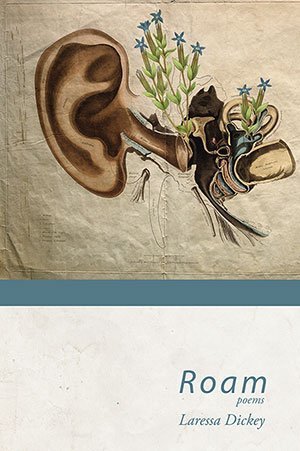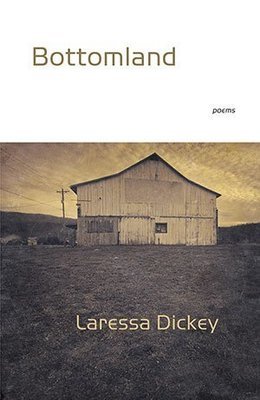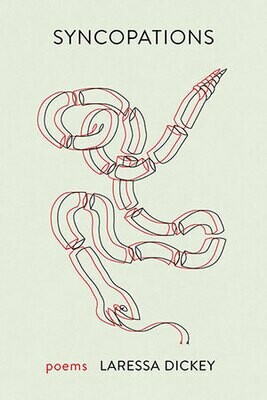Shearsman Store
Laressa Dickey - Roam
Published October 2016. Paperback, 96pp, 9 x 6ins
ISBN 9781848614864 [Download a sample PDF from this book here.]
Roam
marks a migration: back, forward and round again. Who stays? Who is allowed to roam? Mistakes, reverses—what do we take of our presence and past as we discover the world through our own perceiving? Motion comes first, then form. What is fixed? And who is with us? How does the past come toward us? How do we make sense of loss, silence? Disoriented, relating to a past that is unclear, we cannot be sure both where we are and which direction we’re moving. The question becomes where is the future? Roam
proceeds toward it by echolation and witness—making something integral come alive.
“I don’t know how to say what kind of foreigners we were.” So ends a poem in Laressa Dickey’s luminous new collection that reconfigures itself in six sections, each one with its own impulse but always circling back to the irreconcilable tension between migration and stasis. When does the act of relocating become oppressive through its continual movement, and inevitable fatigue? Can true freedom lie within the parameters of belonging in a certain space? The poems of Roam range from the micro to the macro in their scope; small intricacies of memory are set against, and within, the traversing of vast topographical expanse. Fleeting yet potent images (“patients on stone tables made of dust;” “Trees made of maps with distended stomachs”) amass to give the impression of a chorus, envicing generations of flight, the process of flight, and “homing”. Fragmentation becomes cumulative, but, as ever in Dickey’s poetry, the lone articulation rises up to speak for the whole, the “one person slipping over the Atlantic,” who describes in exquisite and achingly beautiful lines the ever-alert state of escape versus sanctuary, the vigilance of a mind that constantly navigates and sustains the “body full of space.” Responding to our world where borders are contentious and the migrant encounters a ceaseless battle against prejudice alongside their fractured lives, Roam puts forward the notion that when building a fire, smoke will blow back into a house. Something will always be left behind, to linger and settle, even though it may visibly disperse. “All the traces of people waiting throughout time/footprints mark the way::/:: they are erasable/what is left/what is left/what is left/they go.” —Jane Lewty
Order from these retailers:
Order from The Book Depository
Order from Wordery.com
Order from amazon.co.uk
Order from Barnes and Noble.com
Order from amazon.com
Order from Small Press Distribution (SPD)
Shearsman Books Ltd. All rights reserved
Shearsman Books Ltd registered office 30–31 St. James Place, Mangotsfield, Bristol BS16 9JB ( address not for correspondence ). Registered in England as company no. 4910496.





